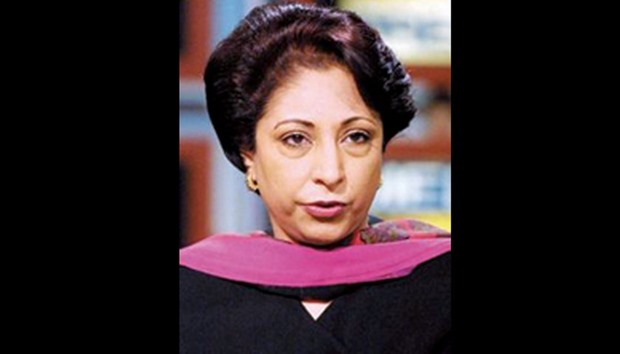Pakistan has told the United Nations that peace and stability in South Asia cannot be achieved without resolving underlying disputes, agreeing on measures for nuclear and missile restraint, and instituting conventional forces balance.
“Our conduct continues to be defined by restraint and responsibility, and avoidance of an arms race [in South Asia],” ambassador Maleeha Lodhi said in a speech to the UN Disarmament Commission yesterday.
She said there was a lack of progress on the part of nuclear-weapon states in fulfilling their legal nuclear disarmament obligations, which could be further impeded by countries “greatly strengthening and expanding [their] nuclear capabilities”. Another key challenge, Dr Lodhi said, was granting discriminatory waivers to some, which constitute nuclear double standards.
Many states, she said, particularly in South Asia, continued to pursue the policies of proliferation with military expenditures rising and conventional weapons inventories expanding.
“Disruption of strategic stability in South Asia by induction of nuclear weapons in our neighborhood fundamentally challenged my country’s security,” she said, in an obvious reference to the 1974 Indian nuclear test.
“We were left with no option but to follow suit in order to restore strategic stability in the region and deter all forms of aggression.”
The ambassador emphasised the discriminatory nature of the proposed fissile material cut-off treaty and the urgency of providing legally binding assurances to non-nuclear- weapon states.
Lodhi told the delegates that Pakistan had the requisite credentials and expertise to be part of international export control bodies and has therefore, as a first step, sought membership of the Nuclear Suppliers Group (NSG).
“As the NSG deliberates on the legal, technical and political aspects of membership of non-NPT countries, it must establish and adhere to a transparent, objective and non- discriminatory criteria that ensures equal treatment of non-NPT applicants for the Group’s membership,” she said.

u201cDisruption of strategic stability in South Asia by induction of nuclear weapons in our neighborhood fundamentally challenged my country’s securityu201d
